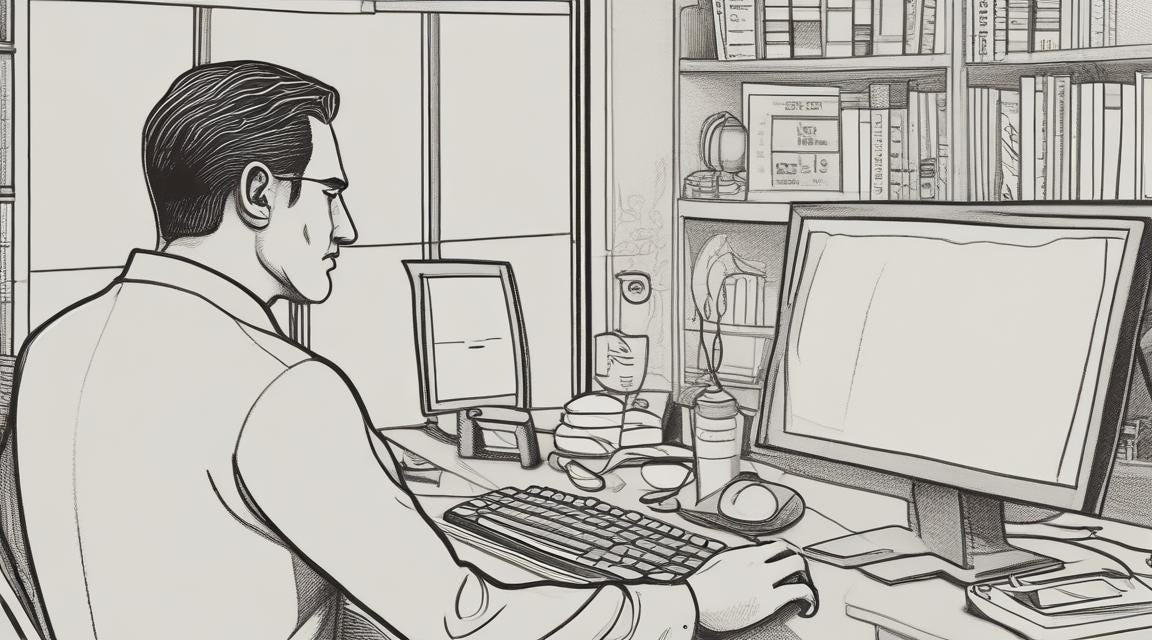The grind of writing
Mastering purpose takes more than inspiration
“Yeah, I’ve always wanted to write a book,” they say.
Last month, I posted how people share their idea for a novel. And what separates those who say they want to write a book and those who write the book is one thing:
Writing the book.
It sounds so simple, and it is. And I think if good stories only consisted of the first act, there would be far more authors in the world. Why? There is excitement in the first act. There is world building. There is introduction to the characters. There is setting up the story and introducing the instigating incident that puts the story into motion.
But then comes the second act.
This is where authors have to move from setting the scene to moving the story forward. The story’s arc needs to provide conflict, create change, and progress toward a climax. Those elements lead to endless choices, sometimes hard ones and often authors find themselves paralyzed by these decisions and their resulting consequences.
Add to it, writing is hard and is an endless pursuit of finding the words to introduce one’s ideas and imagination. We may intuit them. We may visualize the scene, but how do we share that with the reader? Writing is communicating what’s in our minds onto the paper/screen.
I call this part “the slog.” Steven Pressfield, who wrote a great book on creative endeavors (The War of Art) calls it “the resistance.” When we’re in the slog, we’d rather be anywhere else instead of in front of our story. It’s the point where we can give up and tell everyone we were just kidding. Then the idea is left to a corner of the mind to be brought up when you’re telling someone about a great book idea you have.
And that’s the choice. Moving on - or - Moving forward. And how does one move forward through the slog?
Put in the work. Commitment. Discipline.
The second act is about being fanatical about sticking to the plan of writing. It may not be every day, but it has to be regular. It can’t rely on motivation but be rooted in discipline. On my three novels, I set a weekly page goal, instead of a daily word count. I knew that life, one with a family and a regular job, happens, and I have to show myself grace to keep guilt and shame from torpedoing my process.
Discipline pulls you through to the third act, which builds on the foundational principle of discipline. Creating the climax of the story, wrapping up the loose ends, and possibly setting up the next book in the series are the biproducts of the commitment to the process.
The process has different nuances for everyone. Some writers, including Ernest Hemingway, Jane Austen, and John Grisham use extensive outlines to create their novel. Often, they believe that spending more time on an outline makes writing the book easier. And if the plot is dense with several threads running simultaneously, it’s hard to do anything but plot.
For other writers, like Stephen King, they push through and let the story take over. I’m more in this space, but that means always pushing forward and not looking back. It may mean journeying down a rabbit hole to find another way to daylight. The point is to keep writing like your life depends on it, because it does. The life of the book depends on the author to keep writing it.
That isn’t to say the book is going to be good after that first draft. In fact, it wll be the worst version of your story. Every line will be read, reviewed, and edited hundreds of times before any consumer opens the front cover. To me, that’s liberating for a first draft. I don’t have to create the perfect the prose the first time through. I only need to push the story out of my head and onto the page.
I’m not a stickler to writing every day but you have to continually be working. It may be research. It may be putting words to page. It may be reading similar genres or character studies. I’ve been recently rewatching Loudermilk on Netflix, because my main character is cranky but also funny. I want to understand how to make a main character unlikeable and likeable at the same time.
And doing the work for something you’re passionate about is the fun of it. Whether it’s writing, woodworking, cycling, golfing, or any other endeavor, we find joy and satisfaction in the doing, not necessarily the end product. To paraphrase motivational speaker Mel Robbins, The purpose of going for a hike is not to get to the top. It’s to be on the trail. If you constantly stare at the top, you’re going to be out of breath, telling yourself we’ve got so much farther to go. And you’re going to miss the entire point of your life, which is the trail.
At the end of the day…
Keep working on what gives you meaning.
Do the work. Keep the discipline. Embrace the Process.
You’ve got this.
Side of Mustard
When you’re an Indie writer, the small things give you joy. I checked my dashboards for my Amazon shop and my distributor. Last week, I sold five books with no marketing. I always find it a positive sign that the books are finding their way to readers without my knowledge.
Please feel free to read, review, and recommend to your friends and family.
Lose Yourself
Published 2024 by OT Press
Friends in Low Places
Published 2021 by OT Press



